Decent fishing
Only once in my life have I fished from a boat in Bolivia. That was on the legendary Lago Toro, which I believe would be translated into English as Bull Lake.
The name is fitting. Think of it as you would “bull market” and you get the idea. A sure investment and everybody wants in.
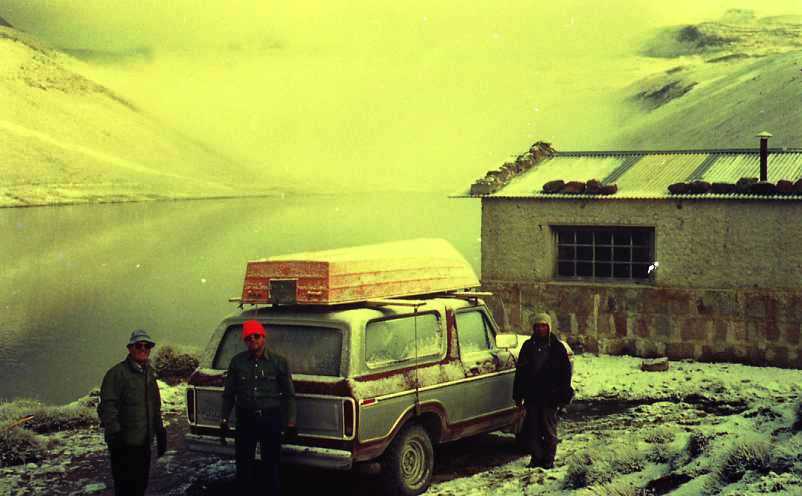
Not everybody gets into Lago Toro, however. Entry is by invitation only. Security is tight. The lake lies up near the stratosphere among the barren peaks of Potosi department. You need a sturdy four-wheel drive, extra fuel tanks and two full days to get there and home again. Oxygen tanks are not mandatory, but recommended.
Legend has it that a tin mining company built the lake in the early 1900s to supply hydroelectric power to its mines. At the time, the mine owners were some of the richest men in the world. Lucky for us they liked to fish. They had the foresight and resources (think Swiss bank accounts) to plant fertilized trout eggs cradled in hatching pens in Lago Toro’s feeder streams. They expected the hatchlings to wander downstream, populate the lake, grow to trophy size and return to their birth places to reproduce. (See Blog No. 2, How to find them.)
It worked wonderfully. The trout were still reproducing more than half a century later. As they grew to trophy size, so did the legend of Lago Toro.
Every trout fisherman in Bolivia has heard of Logo Toro but only a select few have had the good fortune to fish it in a boat. I still pinch myself whenever I recall my good fortune.
In 1986, two Assembly of God church planters, Dale and Bill, scored an invitation to Lago Toro from a mining company executive who was a member of their congregation in La Paz. They were set to fish for three full days in May, which is fall fishing in Bolivia, the prime time of year. For reasons still unclear to me, Dale and Bill invited me to go along.
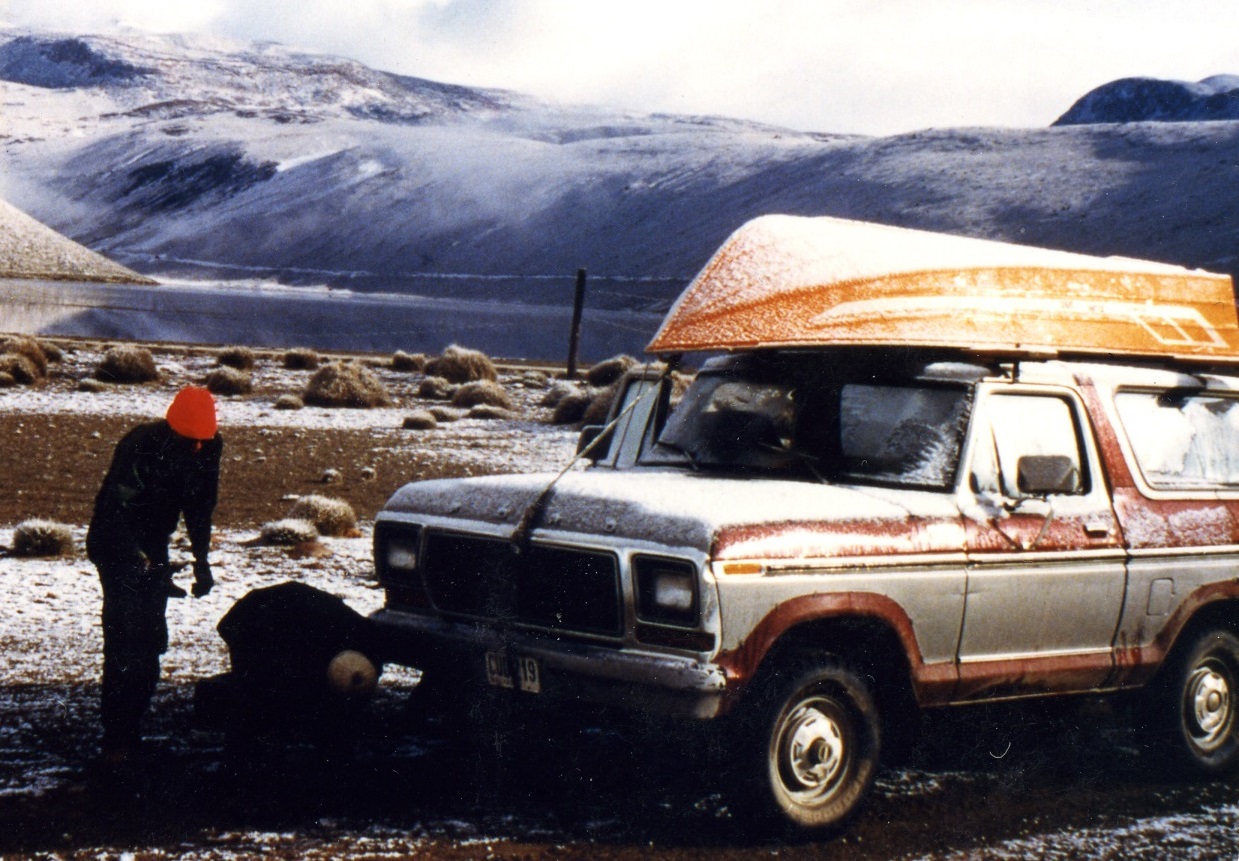
Maybe it was because Bill and I played on the same fast-pitch softball team. Perhaps it was because Dale needed a third man to wrestle his boat on and off the roof of his four-wheel drive and I was one of the few able-bodied candidates who could come up with gas money. Or maybe it was because--and this is what I later concluded--Dale and Bill were simply a couple of decent fishermen who wanted to give a rookie a break.
The trip itself was brutal enough to earn the invite. Before they built a paved highway to the Uyuni Salt Flats, you bounced and jerked over the Altiplano on improvised dirt tracks that destroyed your suspension and tested your sanity. It took an entire day of this to reach the storied lake. We arrived dusty, hungry and sore, with just enough time to unload Dale’s boat and move into the spartan fishing cabin before darkness and bitter cold descended.
But who cared. Fishing on Lago Toro lived up to legend. Dale hooked a three and half pound rainbow in the first minutes of our initial troll around the lake. Every pass thereafter produced sizable fish. On the day I turned 36, I landed two seven pounders, still one of my most memorable birthday gifts. At the end of the three days, Dale’s coolers were full of 140 aggregate pounds of trout to impress our wives and bless our friends.
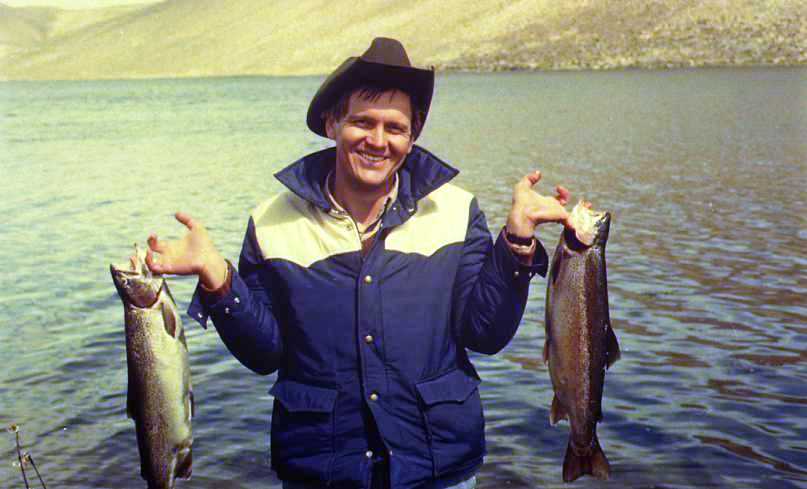
We would have had even more if I hadn’t let the Big One get away. I still go pale whenever I recall the deed.
Near the end of the last day, a monster trout hit Dale’s spinner bait. When it broke water, it looked more killer whale than rainbow. The fish started running, Dale’s reel whined against the drag and we all prayed the running would stop before the line broke. This battle lasted, I’d say, about three hours. Dale’s watch said only 20 minutes, but as you know when you have a monster trout on the end of your line, time stands still.
It fell my lot to net the trout. We followed one ironclad rule when dealing with monster fish: net from the tail, never from the head. That’s where the fish is hooked and if hook and net touch, it can have disastrous results. It did.
Dale played the trout until its ferocious leaping and running subsided and he could muscle it to the surface at the side of the boat. I dutifully scooped the net toward the tail. The monster saw it and casually dove to the bottom. I think he must have seen landing nets before and knew they were not for him. This behavior--Dale muscling, I scooping, trout diving--repeated itself, I’d say, about 40 times.
Finally, frustrated by my feeble scooping and the trout’s endless dives, Dale said, “Just net the thing anyway you can,” and pulled the monster, head first, toward the net.
It went in about halfway before the treble hook caught the mesh and pulled out of the trout’s mouth. I raised the net to the surface and, to our horror, we saw that he had backed out of the trap and stretched himself across the frame of the net, which was about half his length. He balanced there a split second, relishing his victory no doubt, before giving a slight flip and diving once again and once and for all to the bottom.
Dale uttered a Christian swear word, “Sick!” That was all he said.
I went pale, trying to think of a suitable apology. But as you know, there are none for a disaster of such proportions.
Later, Bill tried to comfort me, pointing out that it was not entirely my fault. “After all, Dale told you to do it.” Thanks, Bill, nice try.
I never went fishing with Dale and Bill again. Soon after that memorable trip, Dale moved to Uruguay. Bill got very busy planting a thriving Assemblies of God church in Cochabamba and had only enough leisure time for fast-pitch softball.
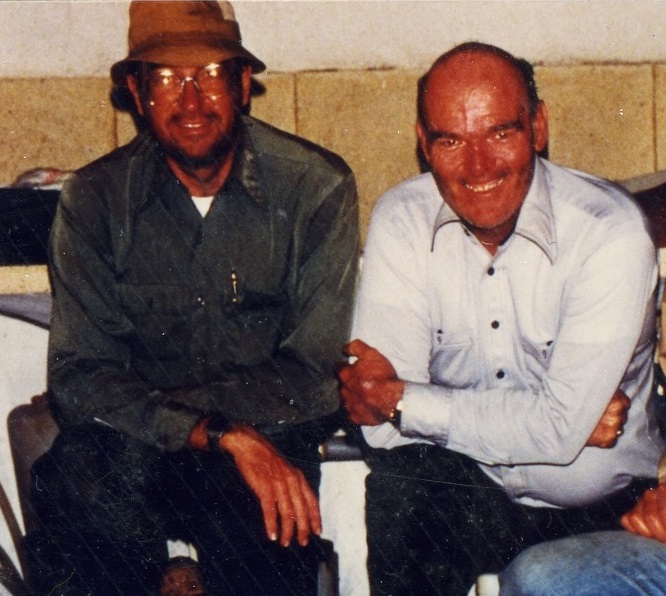
I didn’t see Dale again, in fact, until some 20 years later when Barbara and I caught up to him and his wife in retirement in Oklahoma. They invited us to lunch at their favorite restaurant.
It was great reminiscing about shared times in Bolivia and hearing about their church planting career in Uruguay. Lago Toro never came into the conversation until dessert. Then, I couldn’t take it any longer. My conscience was stinging. So I asked, “Remember the time we went fishing together?” earnestly hoping that Dale would not remember.
“Yes, I sure do,” he said, gazing steadily at me.
“Do you remember your monster fish, the one I tried to net and lost?” really hoping that by now he would not remember that.
“Yes,” he said, his steady gaze still fixed on me.
And that was it. Dale said no more, just smiled a wry smile as the picture crossed our minds of the huge rainbow diving lazily to the bottom of legendary Lago Toro.
That whole experience underscores a truth about fishermen: they are decent people. Fishermen share their stuff, give rookies a break, and endure cold, hunger and bad roads without complaint. They tolerate mistakes and, above all, they don’t hold grudges.
I can’t prove it, but I suspect these character traits are why Jesus made fishermen the core of his disciple group. He knew what they were made of. Of course, they were a reckless, thoughtless, easily frightened and prejudiced bunch to start with, but He could handle that because, frankly, aren’t we all?
One day the disciples asked Jesus how many times it was okay to forgive somebody. They already had an estimate in mind. “Seven times? Don’t you think, Jesus, that’s a nice round figure for, um, letting someone off the hook?”
The disciples seemed to think Jesus would agree, perhaps because seven is the Bible’s perfect number.
Jesus smiled a wry smile. “No, not seven times,” he said. “Seventy times seven would be more like it.”
This kind of exchange happened all the time during the three years Jesus lived with these guys. It was part of His program for their transformation. His daily teaching and example and a powerful dose of the Holy Spirit molded these ordinary people into the effective task force Jesus needed to call men and women into the Kingdom of God.
They were just decent fishermen to start with, that day they first met Jesus. But by the time He was finished with them, they were legendary.
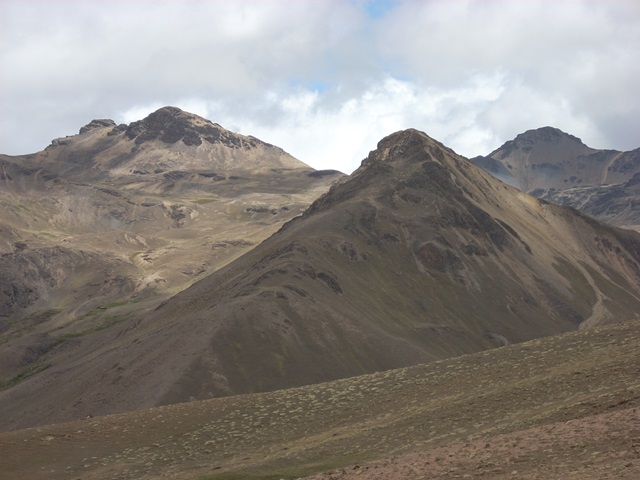
Next time: Fishing dog

